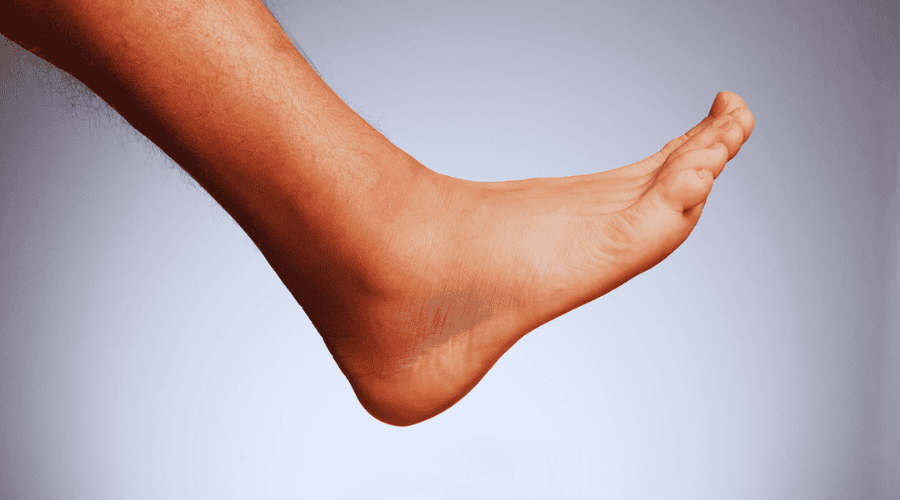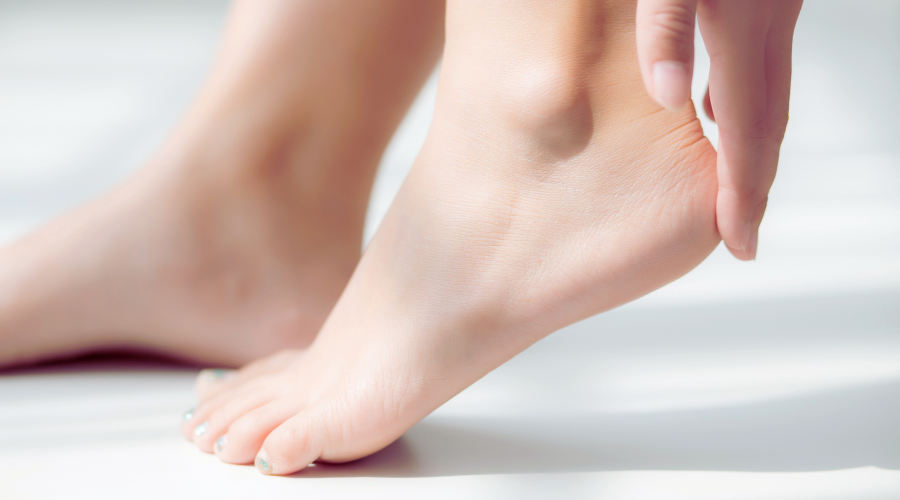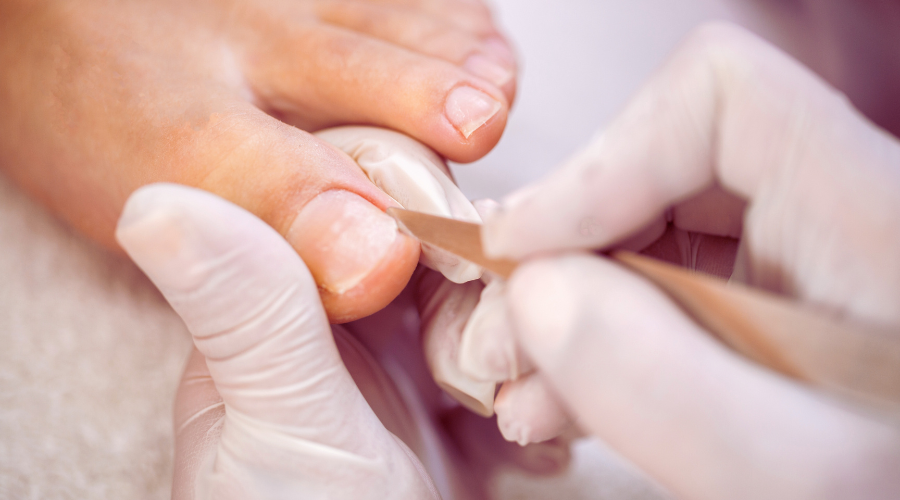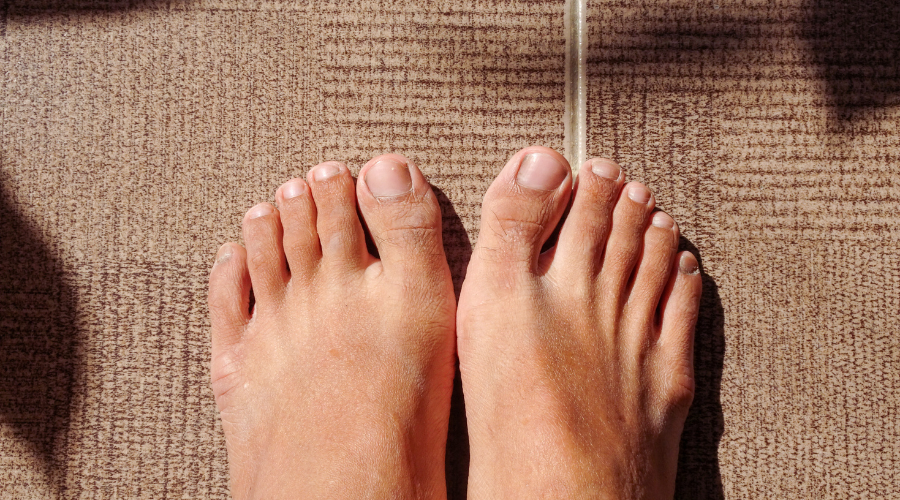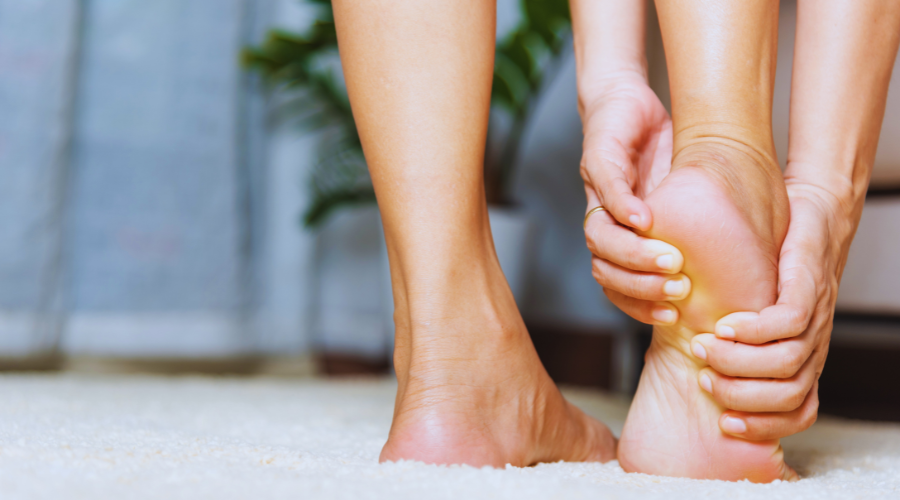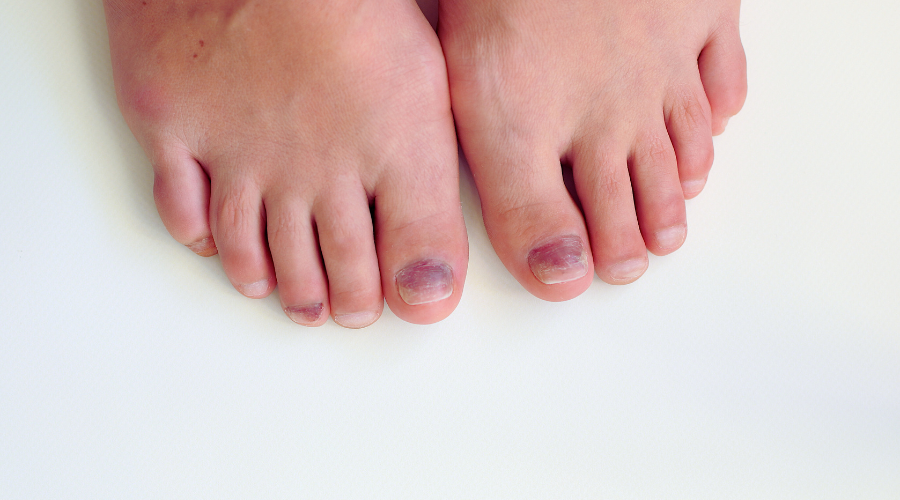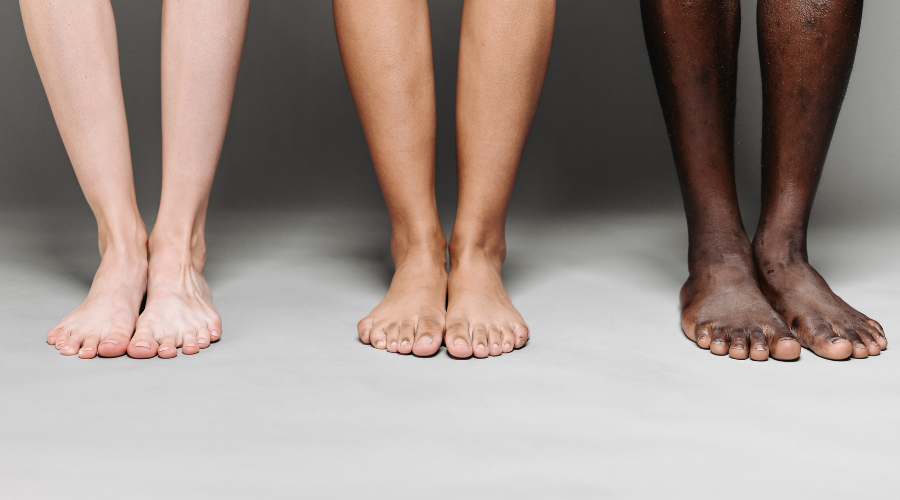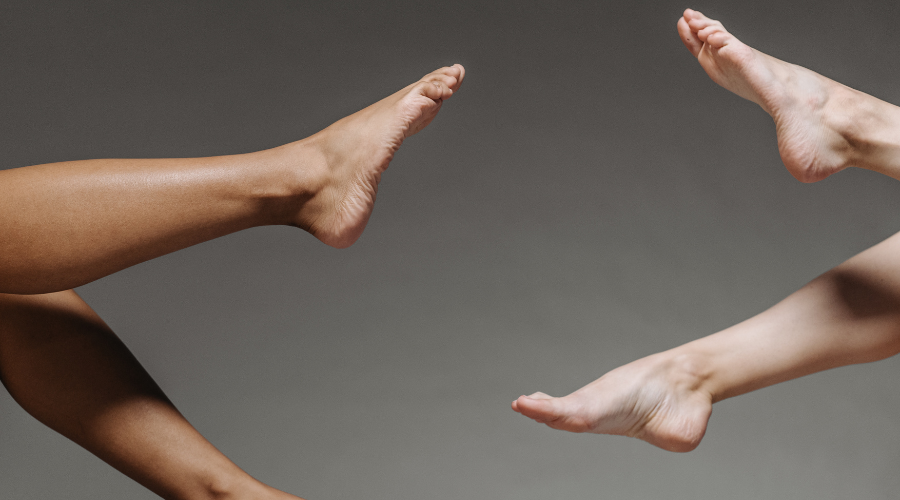Our bodies are prone to infection, and our feet are no exception.
Here are some of the most common types of foot infections and how to treat them.
Remember that you should always consult a trusted podiatrist before deciding how to treat your foot infections or other foot problems.
Athlete’s Foot (Tinea Pedis)
One of the most common type of foot infection is tinea pedis. Commonly known as athlete’s foot, it doesn’t just affect those who play a lot of sport.
It often starts with a rash and itching, and then the skin on your feet starts to flake. Usually it affects the skin between and around the toes.
Athlete’s foot can be contracted from public wet areas like saunas, showers and swimming pools, as well as gyms. It thrives in moist environments and can be spread via floors, clothes or towels.
In many cases an over the counter (OTC) anti-fungal spray or cream will clear it up. For some tricky and persistent occurrences, you might need to get a prescription from your GP or podiatrist for stronger anti-fungals not available OTC.
Onychomycosis (Toenail Fungus)
Onychomycosis is a fungal infection that usually spreads slowly underneath your toenail. It often presents alongside athlete’s foot, which only affects the skin on the foot.
The nail can become white or yellow, and thicken and brittle. The toenail could also become crumbly and have jagged edges. It can even become separated from the nail bed.
The recommended treatment is usually a stronger oral anti-fungal since topical options don’t work as well for onychomycosis.
Plantar Warts
Plantar warts are caused by an infection and often affect the feet, specifically the soles of the feet. The infection responsible for plantar warts is the human papilloma virus (HPV).
Like athlete’s foot plantar warts are spread via infected areas like public toilets and showers, and public swimming pools and saunas.
They usually appear on toes or the soles of the feet and can cause some pain or discomfort. Other than that, there aren’t usually any other symptoms.
Some plantar warts can be treated with OTC medications but for ones that just won’t go away, book an appointment with a podiatrist. Podiatrists have access to treatments that are more effective and fast-working than the ones you buy at the pharmacy and they can be much more successful as a long term treatment.
If you have plantar warts that just keep coming back, speak to our podiatrists in Sydney today.
Paronychia
Paronychia is an infection of the nail fold usually due to a bacterial infection. It often occurs at the cuticle or at the site of a damaged toenail. The area around the toenail becomes painful, red and swollen. There is acute and chronic paronychia.
Treatment of acute paronychia is done by draining the pus and usually this is enough however it does not respond to drainage then antibiotic therapy will be required.
Chronic paronychia is painless and a result of nail trauma. It is caused by damage to the waterproof seal between your nail and your nail plate (i.e. pushing back cuticles). Once this seal is damaged water and debris can enter your nail fold and cause inflammation.
Treatment involves correct care of the cuticles and topical corticosteroids.
Cellulitis
Cellulitis will often present as swelling, warmth, and pain, accompanied by red streaks that move upward from the foot area. You can also experience a fever, chills or body aches due to the level of infection.
Typically it occurs when you’ve experienced trauma to your skin and the bacteria that transmit this type of infection get into the tissue. Insect bites, cuts and grazes, and skin conditions like eczema and psoriasis could allow this infection to take hold.
It can be a very serious skin condition and should be treated as an emergency. Seek medical assistance urgently if any of these symptoms appear.
If you’re struggling with any of these common types of foot infections, speak to our friendly podiatrist in Sydney today. We can help diagnose and treat many kinds of foot infections and help you on the road to recovery.
Don’t suffer in silence, contact us today!



